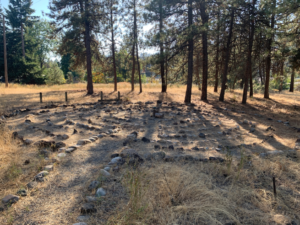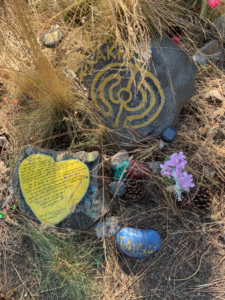Let’s just start out by stating the obvious.
Family is complicated.
There is such a complexity of emotions, familial obligations and intertwined history that make the dynamics of family relationships… complicated.
As young children, we are taught that our parents know what is best for us. We model what we see.
In our childhood, most of what we see, and are therefore influenced by, comes from our family- parents and siblings, aunts, uncles and cousins– whoever we spend the most time with. We pick up their habits, make their beliefs our own, and we learn to think based on what we have heard them say and seen them do.
Family ties can indeed bind us.

So how do we break free when what we have been told, shown and learned is wrong?
It is unfortunate (but true) that sometimes the people closest to us (including our family) are not the best influence. I’ve learned some hard lessons about that. I share them with you here.
I’ve learned that you can love someone, yet acknowledge and recognize that their beliefs and behaviors are destructive, hurtful and wrong.
I’ve learned that loving a family member does not mean you have to emulate their behavior, accept their beliefs as truth, or condone their toxicity in your life.
I’ve learned that it’s okay to love a person, yet keep them at arm’s length for your own health and well-being.
I’ve learned that we often need to put boundaries firmly in place, even if those boundaries keeps some family members out.

This is contrary to what we are often taught. There are songs, sonnets, and quotes about the importance of family. We are taught that to forsake family is to commit the worst of offenses.
We are taught that ‘Blood is thicker than water’ and ‘Family is all we have.’
However, the reality is this: Sometimes, the family tree needs… ‘pruning’.
The toxicity from unhealthy family members is extremely damaging. If you accept it as an ongoing part of your life, it will fester and spread in you until it starts to spill out into your life and relationships, often in devastating and catastrophic ways.

Don’t believe me? Consider the long-term affects of toxicity in children who are taught racism and xenophobia- Unless their beliefs and mindsets are corrected, those children grow up intolerant and hateful of those who are different.
Toxicity isn’t limited to discriminatory behavior either; We also see it in mindsets and beliefs- in things like negativity and unforgiveness.
It’s insidious and pernicious.
Hence the need for pruning. Otherwise, you propagate the behavior of toxic family members, which is how generational curses continue.
After all, there is some truth to the saying ‘The apple doesn’t fall far from the tree,’ as well as ‘a rotten apple can spoil the whole bunch.’ Therein lies the danger, because the company we keep and the people we listen to- they all have incredible influence over us.


Consequently, pruning is a good practice. It allows us to focus on making outcomes as positive and healthy as possible. For example, gardeners thin their seedlings to ensure that what remains has enough nutrients around them to help the plants grow strong and healthy.
2 He cuts off every branch in me that bears no fruit, while every branch that does bear fruit he prunes so that it will be even more fruitful.
John 15:2 (NIV) Tweet
Our goal should be to keep what is good, strong and healthy in our lives, and leave behind that which is unhealthy.
Forsake those who encourage resentment, unforgiveness, negativity, divisiveness and toxicity, even if they are family.
Choose those which brings more goodness into your life.
MORE, please.
More goodness, more hope, more encouragement, more grace, more forgiveness.
More LOVE.

You know what has to be done.
I’ll share how in my next post.






1 Comment
Great article Sheli. You are an amazing person.